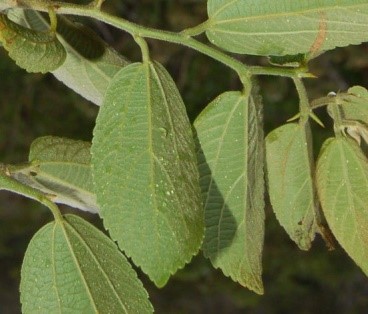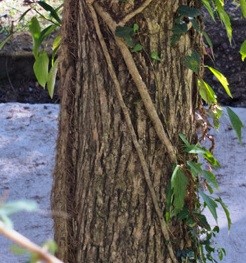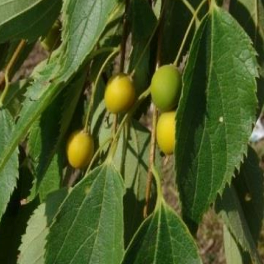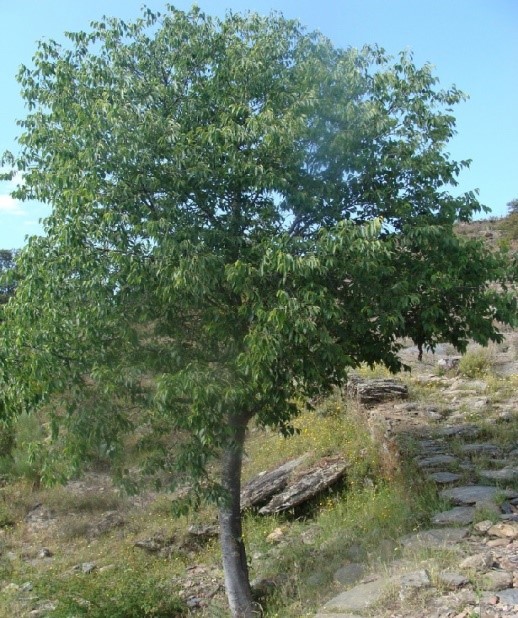Trees
Celtis eriocarpa Decne.
Celtis eriocarpa Decne.
Description :
A
moderately fast growing, medium to large sized, deciduous tree. It reaches
heights of 9 to 18 m with diameters of 6 to 9 cm. Mature trees have large
crowns and a buttressed base. The leaves are simple and alternate. They are 7
to 12 cm long, are tough, leathery, oval shaped and pointed. The bark is
blue-grey smooth, with horizontal ridges and round swellings. The small, pale
yellow or greenish flowers may be perfect (both sexes) and imperfect (one sex)
on the same tree. They occur on the new shoots before the new leaves appear.
The fleshy fruits are round 1 cm in diameter. The fruit is green turning to
yellow then to blue-black when dry. It flowers between February and May and its
fruit matures between April and September. It appears to be disease and insect
free. It is reproduced from cuttings, coppice, and seed. Seeds have high
viability. Diameter growth of 0.6 cm/yr has been observed. Sap wood is yellowish
white to pale yellow with dark irregular streaks having Straight and uneven
textured Grains, with Specific gravity of 0.60.
Distribution :
The
tree is native to Pakistan, India and Nepal. In Pakistan it is common on both
sides of the Indus. Natural and cultivated stands and individuals are not
uncommon throughout central Pakistan. Very common in Islamabad as avenue tree. A
moderately intolerant tree that will stand some shade. It grows on a variety of
sites and soils including both dry rocky site to swamps. It is adapted to a
precipitation zone of 750 to 1225 mm/yr. It has a temperature range of -20 to
40°C and is frost hardy. It prefers a sub-humid, cool to semi-arid. Warm sub-tropical
winter/monsoon climate, usually at elevations of 400 to 1800 m.
Uses :
This is a very valuable
tree for both food and fodder. The fodder is highly palatable and is used for
forage in the sub-mountainous regions. The wood has many uses including fuel.
It has potential both as a farm forestry tree and as an ornamental. Also used
in Tool handles, agriculture implements, fodder, and food (fruit).



